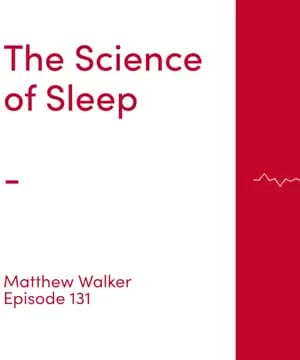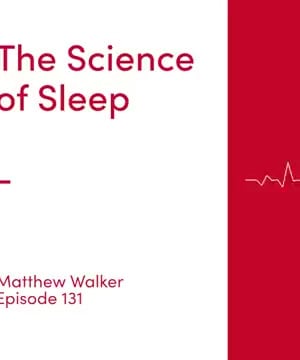Sleep Disorders
Sources:
Shane Parrish has discussed various aspects of sleep disorders and ways to address them in his podcast, "The Knowledge Project." Here are some key insights:
-
Factors That Guarantee Bad Sleep:
- Caffeine, Alcohol, and Nicotine: These substances are stimulants and disrupt sleep cycles.
- Stress and Anxiety: High levels of stress can prevent falling asleep and maintaining deep sleep.
- Chronotype: Knowing whether you are a morning or evening type helps in aligning your sleep schedule with your natural circadian rhythm 1.
-
Sleep Restriction Therapy:
- This technique involves limiting the time spent in bed to increase the pressure for sleep, eventually helping the brain to relearn the ability to maintain continuous sleep throughout the night. It essentially makes sleep more efficient by creating a demand for it 2.
-
Sleep and Immunity:
- Lack of sleep compromises the immune system, making it harder to fight off infections. The body’s natural killer cells get upregulated after a sleepless night, but the specific immune response gets weakened. Good sleep is crucial, especially when fighting infections 3.
-
Stages of Sleep:
- Sleep has several stages, including light sleep, deep sleep, and REM sleep. Each stage plays a different role in brain and body function. For example, deep sleep primarily occurs in the first half of the night and is crucial for brain cleaning, while REM sleep, which is more abundant in the second half of the night, helps with memory consolidation and emotional resolution 4.
-
Efficient Sleep Tips:
- To optimize sleep, maintaining a regular sleep schedule aligned with your circadian rhythm is essential. Missing sleep one night can lead to compensation by having more efficient sleep the next night, but chronic sleep loss can't be entirely compensated 5.
-
Sleep Supplements:
- Supplements like magnesium, apigenin, and theanine can improve sleep quality by promoting relaxation and activating the neurotransmitter GABA, which helps shut off the forebrain. However, caution is advised for individuals prone to sleep disturbances like night terrors 6.
By understanding these insights and incorporating some of these practices and recommendations, one can potentially improve their sleep quality and mitigate sleep disorders.
RELATED QUESTIONS-





